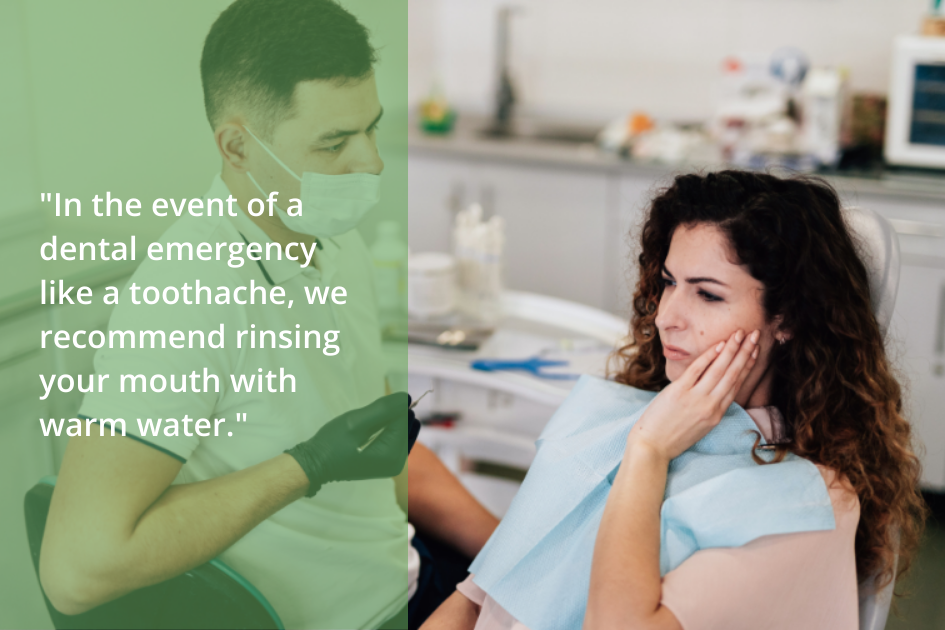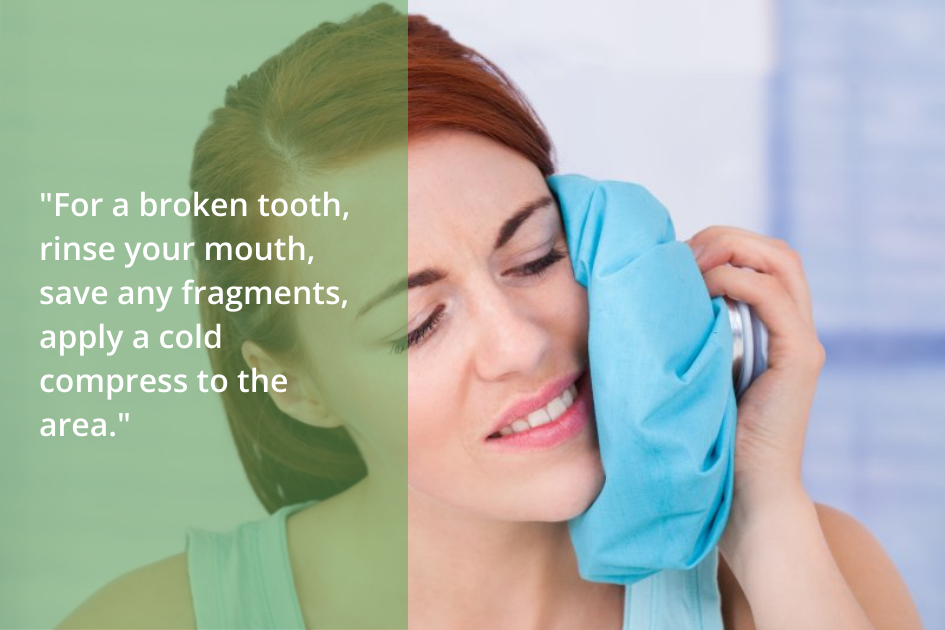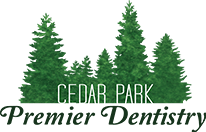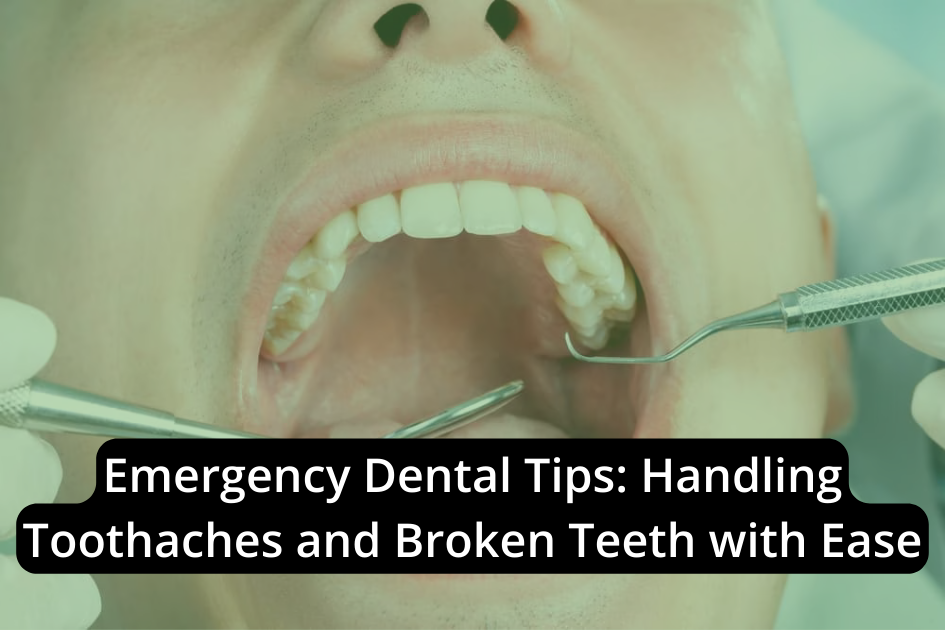In the event of a dental emergency like a toothache, we recommend rinsing your mouth with warm water, using dental floss to remove any trapped food, and contacting your dentist without delay. Never apply aspirin directly to the aching tooth or gum. For a broken tooth, rinse your mouth, save any fragments, apply a cold compress to the area, avoid chewing on that side, and reach out to your dentist immediately. Swift, wise actions are essential in dental emergencies to mitigate risks and save the tooth. Stay tuned for more advice to navigate these stressful situations.
Identifying Dental Emergencies
While it might seem intimidating, being able to correctly identify dental emergencies like severe toothaches, knocked-out teeth, tooth abscesses, broken dental work, and mouth injuries is essential for receiving prompt treatment and preventing further complications. Severe dental pain, bleeding, swelling, and injuries to the mouth are clear signs of a dental emergency.
We shouldn’t take severe toothaches lightly. Such extreme discomfort could indicate an abscess, decay, or an infection that necessitates immediate attention. Similarly, knocked-out teeth and broken dental work represent urgent dental emergencies. Prompt action in these situations can have a significant impact on the success of treatment.
Mouth injuries, too, can be quite severe. Cuts, lacerations, or puncture wounds in the mouth may not only cause pain but also increase the risk of infection. This makes it critical to identify and address these dental emergencies promptly.
Immediate Response to Toothaches
After recognizing a dental emergency, knowing how to respond is key, especially in the case of severe toothaches. The first step in managing a toothache is to stay calm. It’s important to not let the pain take over your judgment.
- Rinse your mouth: We recommend rinsing your mouth with warm water. It can clean the area and may help alleviate some discomfort.
- Use dental floss: It’s possible that the pain is due to food particles trapped between your teeth. Carefully flossing can remove these particles and may alleviate the toothache.
- Be cautious of aspirin: One might think that applying aspirin directly to the aching tooth or gum would provide relief. However, this can lead to irritation and should be avoided.
After these immediate steps, it’s essential to contact your dentist. Explain your symptoms clearly so they can provide appropriate advice. It’s important to follow their recommended treatment plan. This could range from over-the-counter pain relievers to an urgent dental visit. Remember, an untreated toothache may lead to more serious problems, so don’t delay seeking professional help.
Handling a Broken Tooth

If you find yourself dealing with a broken tooth, it’s essential to take immediate and proper steps to minimize discomfort and prevent further damage. First, rinse your mouth with warm water. This helps clean the area around the broken tooth, removing any debris that could cause irritation or infection.
Next, carefully collect any tooth fragments you can find. Saving these fragments is key as your dentist may be able to reattach them. To preserve these pieces, place them in a container filled with milk or your saliva.
It’s equally important to avoid chewing with the side of your mouth where the broken tooth is. This can prevent additional injury and discomfort.
Lastly, to manage any swelling or pain, apply a cold compress to the outside of your mouth. This can help numb the area and decrease inflammation.
In all of this, remember to reach out to your dentist as soon as possible. They can provide further guidance and arrange an emergency appointment to repair the damage. We can’t stress enough the importance of prompt professional attention when it comes to a broken tooth.
Importance of Prompt Dental Attention
In the domain of dental emergencies, securing prompt attention isn’t just an essential, but a necessity to prevent further complications and damage. Emergency dental care is vital, whether we’re experiencing a toothache or dealing with a broken tooth.
There are three main reasons why immediate action is imperative:
- Alleviating Pain: A toothache or broken tooth can cause severe discomfort. Prompt attention can help manage this pain more effectively.
- Preventing Infection: Ignoring dental emergencies can lead to serious infections, potentially impacting overall health.
- Saving the Tooth: Swift intervention increases the chances of saving a damaged tooth, reducing the need for extensive procedures later.
Delaying treatment can lead to more severe consequences, including tooth loss and the need for more invasive dental procedures. We mustn’t underestimate the importance of prompt dental care in these situations. By seeking professional help immediately, we can mitigate these risks and improve outcomes.
Professional Guidance During Dental Emergencies
When dealing with dental emergencies, it’s essential to reach out to a professional dentist for guidance right away. This immediate contact with your dentist can provide you with specific instructions on how to manage your situation until you can receive professional treatment. It can help alleviate pain, prevent further damage, and ultimately improve the outcome of your emergency dental care.
Dentists are trained to handle various dental emergencies and can offer personalized advice based on your specific situation. They’ve the experience and tools necessary to provide effective dental treatment during emergencies, ensuring the best possible recovery. This professional guidance is vital in managing the often stressful and painful experience of a dental emergency.
However, we can’t stress enough the importance of prioritizing your oral health at all times. Regular check-ups and diligent oral hygiene can prevent many dental emergencies from occurring in the first place. But in case they do happen, knowing that professional guidance is just a call away can provide peace of mind. So, remember, don’t panic, contact your dentist, and follow their recommendations for the most favorable outcome.
Prevention of Dental Emergencies
To prevent dental emergencies, it’s essential that we adopt certain protective measures and maintain good oral hygiene habits. Regular dental check-ups are key in early problem detection, reducing the likelihood of sudden emergencies. In addition to this, practicing good oral hygiene, such as brushing and flossing regularly, can prevent infections that may escalate into dental emergencies.
There are also certain measures we can take to specifically prevent broken teeth, one of the common dental emergencies. Some of them include:
- Wearing a mouthguard during sports activities. This can protect against dental injuries like knocked-out or broken teeth.
- Avoiding chewing on hard objects, such as ice and hard candies. This reduces the risk of cracking teeth.
- Using scissors to cut things, instead of using your teeth, which prevents tooth fractures.
Navigating Emergency Dental Services

While we’re on the topic of dental emergencies, let’s discuss how to navigate emergency dental services that can be a lifeline during such critical times. When you’re dealing with a dental emergency, whether it’s a toothache or a broken tooth, your first point of contact should be your dentist. They can provide immediate guidance and, if necessary, schedule an emergency appointment.
However, if it’s after hours or you can’t reach your dentist, an urgent care center can provide immediate relief and treatment. Remember, the quicker you seek care, the better your chances of successful treatment and recovery.
In severe cases, such as a significant injury or uncontrolled bleeding, heading straight to an emergency room might be necessary. In all instances, follow the advice given by healthcare professionals. If you’ve lost a tooth or there are broken pieces, attempt to preserve them, as this could aid in your treatment.
Conclusion
Facing a dental emergency requires calmness, swift action, and professional intervention. It’s essential to be vigilant about the health of our teeth and gums, recognize the early signs of dental issues, and apply initial care while seeking urgent dental services. Remember, prevention plays a key role in avoiding the distress and discomfort of sudden dental emergencies.
At Cedar Park Premier Dentistry, Cedar Park, TX, we’re committed to guiding you through these challenging moments with expert care and advice. Don’t let dental emergencies catch you off guard. Contact us immediately for assistance. Together, we’ll ensure your smile remains radiant and healthy.


